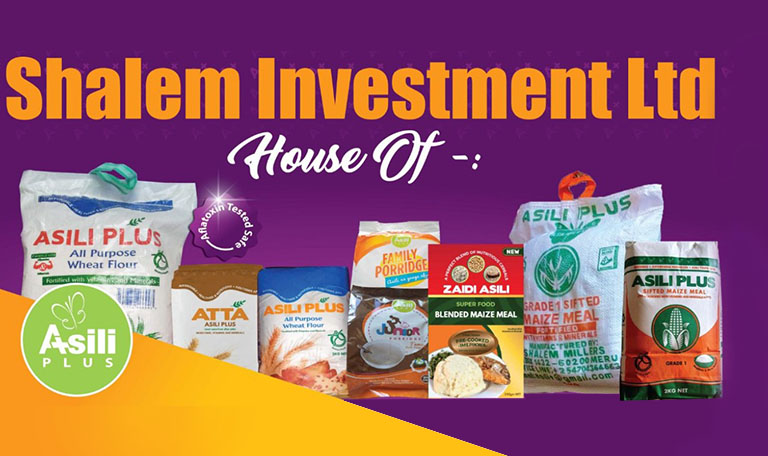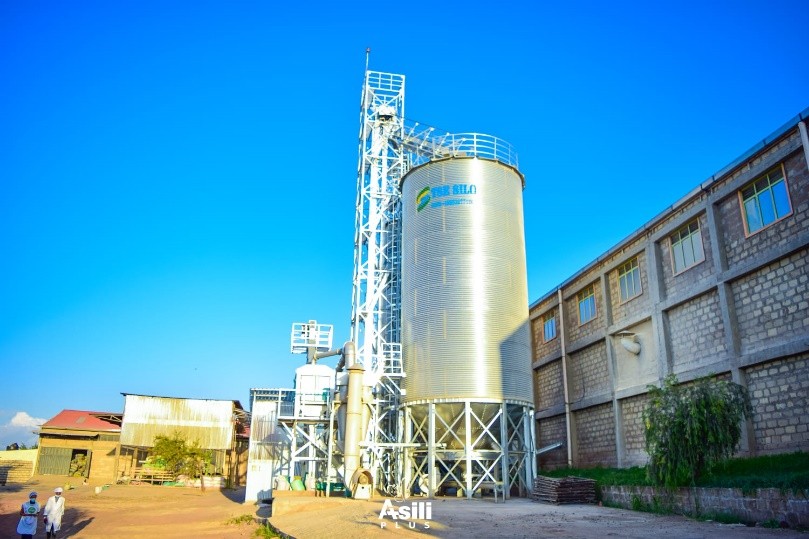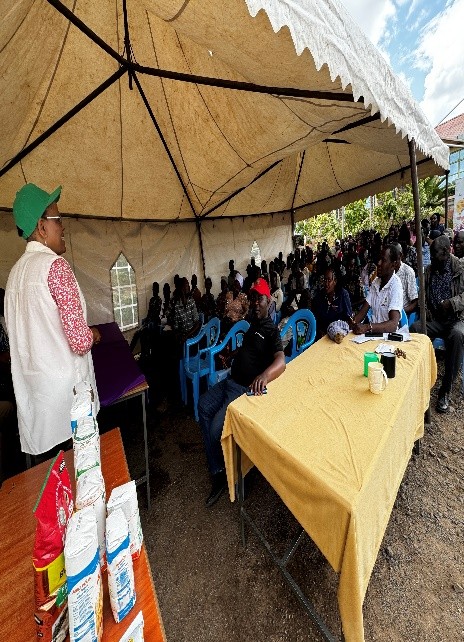Innovation for Impact
How Shalem Investment Limited is enhancing Food and Nutrition Security in Kenya
- Sector: Agriculture
- Sub Sector: Food Processing
- Geography: Kenya, Africa

Introduction:
Shalem Investment Ltd is a Kenyan agri-business enterprise making significant strides in improving food and nutrition security across the country. Founded in 2006 and based in Meru County, the company operates primarily in the grain value chain—sourcing, aggregating, processing, and distributing staple crops such as maize, millet, sorghum, and pulses. With a strong focus on empowering smallholder farmers, Shalem ensures fair market access, capacity-building support, and better returns through value addition at its grain processing factory.
Role of Good Food Innovation Fund and Impact Outcomes:
Supported by Good Food Innovation Food (GFIF) funding, Shalem has exceeded key milestones in its expansion efforts. The company has reached 45 institutions—surpassing its initial target of 36—thanks to the deployment of full-time sales representatives and the use of branded promotional materials that have boosted visibility and demand for its fortified whole grain flour. Since October 2022, Shalem has procured nearly 297 metric tons of grain from local farmers and produced and sold over 252 metric tons of nutritious, fortified flour. These efforts have directly benefited low-income communities across Meru, Marsabit, Laikipia, Tharaka Nithi, Nyeri, and Murang’a counties. With an average monthly sale of 40,000 kilograms, Shalem is playing a pivotal role in combating hunger and malnutrition where the need is greatest.

The company’s market footprint has expanded to include 11 new schools, 5 hospitals, 10 farmer cooperatives, 4 relief institutions, and 11 last-mile distributors. These partnerships are not only strengthening local food systems but also unlocking new revenue streams for farmers and distributors alike.
To meet growing demand, Shalem has expanded its workforce by hiring additional permanent staff and engaging over 50 casual workers on a need’s basis. Its inclusive and locally driven business model emphasises gender inclusion, youth employment, and community development, demonstrating how agribusiness can be a powerful engine for job creation, market expansion, and improved nutrition.
Building Sustainable Solutions:
Shalem is widely recognized for its innovative approach and its contribution to building sustainable, farmer-centered food systems in Kenya.
- Increased Storage Capacity and Operational Efficiency: Before the installation of silos, the enterprise’s storage limitations allowed it to handle only about 1,200 bags of grain daily. Today, it processes over 3,600 bags a day — a threefold increase — thanks to the improved storage infrastructure.
This has enabled:
- Faster offloading times, reducing congestion and turnaround time for transporters.
- Higher productivity among staff, who are now able to manage more grain with less strain.
- Optimized use of space, allowing for higher volumes of grain in a compact footprint.

2. Job Creation and Economic Empowerment:
The silos have created ripple effects far beyond storage. One of the most notable outcomes has been the economic empowerment of women and youth in surrounding communities as they have:
- Transition from labourers to suppliers: About 20 farmer groups, over 150 women and 100 youth who previously spent their days drying grain are now able to supply directly to the factory, which has freed up their time for other activities and other income-generating activities.
- Direct Supply Empowerment for Farmers: Due to increased demand for our products and enhanced grain storage capacity, we have empowered our farmers to deliver their produce directly to the factory Training and capacity building: Shalem has instituted mandatory training programs for women and youth, focusing on key quality parameters such as aflatoxin levels, grain colour, storage and handling standards, bush weight, packaging, and harvesting practices. These trainings are conducted at critical points in the agricultural cycle—specifically at the start of each planting season, during pesticide application, and at harvest time. As they are delivered seasonally, the number of trainings held annually is substantial.
- Transport support: To reduce logistical burdens to farmers and other select suppliers, Shalem has introduced a collection system using its trucks, helping farmers cut transportation costs and reduce post-harvest losses.
- Growth of farmer enterprises:
- Through savings and additional incomes, 2 farmers have acquired their own trucks.
- Others have secured bank loans and scaled up to become larger aggregators. In our project, we supported around 200 farmers in accessing a credit facility last season, which enabled them to plant and achieve their best yields to date. Notably, three farmer groups have significantly expanded their operations and are now able to sell surplus produce to other companies.

3. Improved Grain Quality and Market Reputation:
Silos have helped preserve grain by minimising exposure to moisture, moulds, and temperature fluctuations.
- Consistent product quality: Shalem’s products now maintain consistent standards, leading to fewer customer complaints.
- Recognition: One of its flagship products namely, ASILI PLUS maize meal recently earned the Diamond Mark of Quality from KEBS, signifying excellence.
- Sales growth: Improved product reliability has translated to increased demand and higher sales volumes.
4. Seasonal Buffer and Reduced Post-Harvest Losses:
The ability to buy and store grain during the harvest season, when prices are lower, has enhanced Shalem’s competitive advantage.
- Price stability: The enterprise can offer competitive pricing year-round, regardless of seasonal fluctuations.
- Market responsiveness: With raw material in stock, it responds quickly to spikes in market demand.
- Reduced spoilage: Post-harvest losses have dropped significantly due to both proper farmer training and the preservation capacity of the silos.
Key Learnings:
- Strategic financing is transformational: The support from GFIF went far beyond capital injection. Favourable repayment terms and a flexible financing model enabled Shalem to invest in infrastructure without compromising liquidity.
- End-to-end impact: From operational efficiency to farmer livelihoods and product quality, the benefits have touched every stakeholder in the value chain, including the end consumer.
- Empowering local actors strengthens supply chains: Building the capacity of women and youth, and investing in last-mile logistics has created a stronger and more resilient supplier network.

Challenges & Considerations Moving Forward:
Scaling transport infrastructure: With increased volumes, there is a growing need for Shalem to expand its fleet or establish partnerships for reliable farmer pick-ups.
Ongoing training needs: To maintain quality, consistent re-training of suppliers and field staff is essential.
Managing market fluctuations: Although silos help buffer seasonal changes, broader price volatility in the grain market remains a risk, coupled with cheaper imports.
Conclusion:
The installation of silos marked more than a logistical upgrade — it was a catalyst for inclusive growth, farmer empowerment and product quality enhancement. With the continued support of partners like Good Food Innovation Food (GFIF), Shalem is building not only a stronger company but a more resilient, equitable agribusiness ecosystem.
Find more on Shalem’s Official Website -www.shaleminvest.co.ke
Call to Action:
If you are a startup in the Good Food and Nutrition space in Africa and would like to know more, please write to us at marketing@intellecap.net




